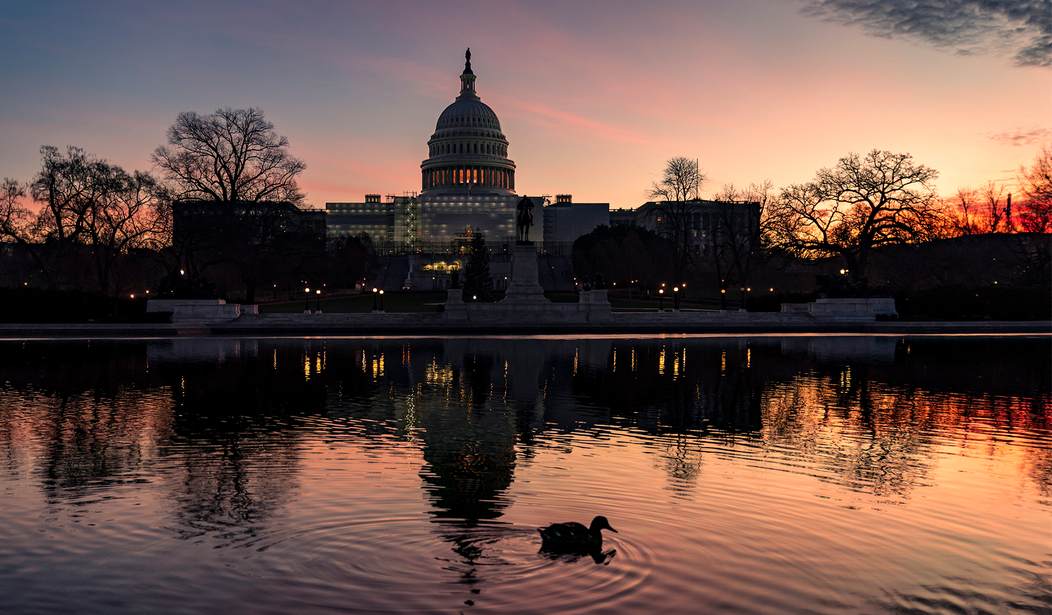It seems the rapid-fire, shock-and-awe momentum of President Donald Trump and his administration working to get things done for the American people has lit a fire under Congress, and it's about damned time. Both houses of Congress presented bills this week to protect the rights of employees, small businesses, independent professionals, and entrepreneurs from regulatory and union overreach.
Rep. Kevin Kiley (R-CA) has been a friend and ally to independent professionals and small businesses since long before he was elected to Congress. As a California assemblyman, he saw firsthand how AB5 destroyed the livelihoods of California independent contractors. Kiley was committed to exposing Biden's failed Acting Secretary of Labor, Julie Su, and her terrible record, and he stood against efforts to revive the PRO Act in the House. In this 119th Congress, Kiley has taken more ground to secure the rights and freedoms for all Americans to work as they choose, without interference from regulations that arbitrarily redefine an independent professional's work or labor unions that are laser-focused on removing our ability to work.
Today Representative Kevin Kiley (R-CA) introduced the Modern Worker Empowerment Act and the Modern Worker Security Act to protect independent workers and businesses from regulatory uncertainty. The Modern Worker Empowerment Act amends existing federal labor laws to establish a clear and predictable test for determining whether a worker is classified as an independent contractor or an employee. The Modern Worker Security Act establishes a federal safe harbor that allows companies to voluntarily provide portable benefits to independent contractors without the risk of federal agencies reclassifying those workers as employees.
“California’s disastrous AB 5 law wreaked havoc on independent workers, stripping them of their ability to work on their own terms and forcing businesses to cut off contractor relationships. Shifting federal regulations threaten to impose similar uncertainty nationwide, putting millions of workers at risk,” said Rep. Kiley. “By codifying both these protections into law, we prevent future administrations from undermining independent workers and provide businesses with the confidence to fully engage with a modern, flexible workforce.”
In the upper chamber, Sen. Rand Paul (R-KY) first introduced the National Right to Work Act in the 118th Congress, but it stalled. In the 119th Congress, Paul is taking this opportunity to re-introduce it, with joint sponsorship from Rep. Joe Wilson (R-SC).
WATCH:
Today, I am proud to introduce the National Right to Work Act, which protects workers in all 50 states from being forced to pay dues to a labor union as a condition of their employment. I look forward to working with Mark Mix and @Right2Work to get it passed.
— Senator Rand Paul (@SenRandPaul) February 12, 2025
Read more:… pic.twitter.com/wsfqw77bX5
President of the National Right to Work Foundation, Mark Mix, appeared with Rep. Wilson in the below video and said in an email release, “Anyone who truly stands with workers and against the union boss special interests that seek to force workers to pay union dues should support Senator Paul and Congressman Wilson’s bill.”
WATCH:
Congressman Joe Wilson just introduced the National Right to Work Act, which protects workers in all 50 states from being forced to pay union dues.
— National Right to Work Committee (@Right2Work) February 12, 2025
Congressman Wilson was joined by 74 original cosponsors who stood up to protect true worker freedom. Thank you! pic.twitter.com/LS8KqvXpVv
For the first time in a very long time, independent professionals and small businesses feel as though they are being heard and that Congress is taking action on their behalf. It is a welcome relief, particularly with the upcoming confirmation hearing of Lori Chavez-DeRemer, Trump's pick for Secretary of Labor. RedState, the National Right to Work Foundation, and other organizations have opposed this nomination and pointed to her sponsorship of the PRO Act when she was in Congress, as well as her cozy relationship with unions. It was Teamsters President Sean O'Brien who insisted Trump nominate her, and American Federation of Teachers President Randi Weingarten gave her a glowing endorsement.
However, thanks to DOGE and Elon Musk derailing the Democrats' gravy train, Democrat senators who might have been inclined to vote for her confirmation are now soured on the idea.
Several Democrats told us they were planning to vote no on Chavez-DeRemer’s nomination or are still weighing their options after frustrations over the Trump administration’s attempts at sweeping cuts. They included Democratic Sens. Brian Schatz (Hawaii), Peter Welch (Vermont), Chris Murphy (Connecticut), Sheldon Whitehouse (Rhode Island) and Lisa Blunt Rochester (Delaware).
Senate Minority Whip Dick Durbin (Illinois) told us that there had been discussion among Democratic senators about withholding their support for Chavez-DeRemer because of Musk’s U.S. DOGE Service efforts but that he was not aware of any final decision.
“I will not support anyone that is going into this administration to illegally withhold funds,” Murphy told us, adding he was a definite no on Chavez-DeRemer.
He spoke positively about his meeting with her but added that it was weeks ago, before the massive disruptions to the government and federal workforce.
“It has soured me on supporting nominees. Whether that’s going to be universal or not has yet to be determined,” said Whitehouse, one of the senators who was noncommittal.
Then there is this recently revealed evidence that in her 20s, Chavez-DeRemer worked for over a year at a Planned Parenthood clinic in California.
President Donald Trump’s nominee for labor secretary, former Rep. Lori Chavez-DeRemer, R-Ore., listed on her questionnaire for a Senate committee that she worked at a Planned Parenthood clinic when she was in her early 20s, according to a copy of the document reviewed by NBC News, although she also made it clear to senators she does not “personally” support abortion.
Chavez-DeRemer said on the form to the Senate Health, Education, Labor and Pensions Committee, which will process her nomination, that she worked at the front desk of a Planned Parenthood clinic in California from January 1989 to May 1990. Her confirmation hearing had initially been scheduled for Wednesday but was delayed until next week because of a snowstorm in Washington.
Chavez-DeRemer has been under fire from some Senate Republicans over her pro-union stances, and it’s likely that she will need to rely on Democratic votes to carry her over the finish line. Her past affiliation with Planned Parenthood — an organization that the GOP has long railed against — could further add to Republican skepticism that her views are not aligned with the party’s on key issues, although no Republican has so far publicly raised her record on abortion as a concern.
Chavez-DeRemer has distanced herself from these recent findings, saying that she stands by Trump's pro-life agenda.
In her written response to the committee, Chavez-DeRemer addressed her work at Planned Parenthood, saying it was a “brief, part-time job.” She also said she does not support abortion and would not promote pro-abortion-rights policies at the Labor Department if she is confirmed.
“This brief, part-time job from over three decades has no bearing on my support for implementing President Trump’s pro-life agenda.
Most independent professionals and business organizations still see her as a Trojan Horse for the unions, which is why these bills before Congress are a much-needed firewall. Call your congressmen and senators and strongly urge them to sponsor and vote for their passage.













Join the conversation as a VIP Member